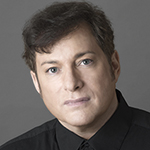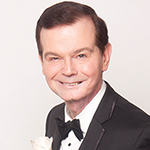Abigail Rockwell
Autumn Noir: Echoes of Jazz
Pangea, NYC, September 28, 2016
Reviewed by Marilyn Lester for Cabaret Scenes
 Although many vocalists have included torch singing in their repertoire, few have made it a specialty as has Abigail Rockwell. With her breathy, smoky voice and sultry demeanor, Rockwell is most reminiscent of Julie London. Autumn Noir: Echoes of Jazz is an engaging, compelling and innovative experience—a beautifully crafted and curated show. What Rockwell brings to this table of torch is poetry: her brief inter-song musings and lyric writing passionately reflect her mood and intellect. She introduces, for example, the original composition “Summer Erotic” (Rockwell/Gary Versace) as a “novena to the city (New York).” And because there’s plenty of angst in torch singing, declares that there is a “shattering beauty in destruction.
Although many vocalists have included torch singing in their repertoire, few have made it a specialty as has Abigail Rockwell. With her breathy, smoky voice and sultry demeanor, Rockwell is most reminiscent of Julie London. Autumn Noir: Echoes of Jazz is an engaging, compelling and innovative experience—a beautifully crafted and curated show. What Rockwell brings to this table of torch is poetry: her brief inter-song musings and lyric writing passionately reflect her mood and intellect. She introduces, for example, the original composition “Summer Erotic” (Rockwell/Gary Versace) as a “novena to the city (New York).” And because there’s plenty of angst in torch singing, declares that there is a “shattering beauty in destruction.
”
Rockwell’s background includes classical training and acting which serve her well. Her commitment to noir is intense. She utterly inhabits this role—“the stark contrast and shadings of light and dark,” which is both a positive and a certain negative. With the jazzy opener “Let’s Get Lost” (Jimmy McHugh/Frank Loesser) Rockwell reveals a distinct charm, and occasionally a beautiful, warm smile peeps through. Scorchers such as the emotive originals “Slow Burn” (Rockwell/Bill Brendle) and “Lane Closed… Do Not Follow” would have benefited from an underpinning of lightness to shade and elevate the darker moods.
Uptempo music counterbalanced the slower pieces with creative jazz arrangements which wondrously placed them at the edge of torch. Several standards were treats, especially a modern arrangement of “Miss Brown to You” (Richard Whiting/Ralph Rainger/Leo Robin) and “Let There Be Love” (Lionel Rand/Leo Grant), two staples of the ever-bouncy Bobby Short, who no doubt would approve of such freshness.
Two other highlights of Autumn Noir: Echoes of Jazz were Astor Piazzolla’s classic “Libertango” (with Rockwell’s lyrics) and a medley of “Almost Blue”(Elvis Costello)/”The Thrill Is Gone” (Lew Brown/Ray Henderson).
Supporting Rockwell with focused and responsive playing were three top-shelf jazz men, including Michael O’Brien on bass and Brian Fishler on drums. Music director and pianist Gary Versace proved to be a wiz at the keys, somehow empathically connected to Rockwell. Versace’s highlight: minus the traditional bandoneon, his accordion playing on “Libertango” was crazy spot-on.





